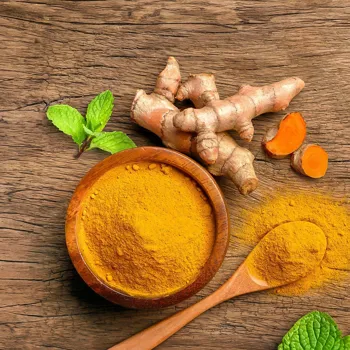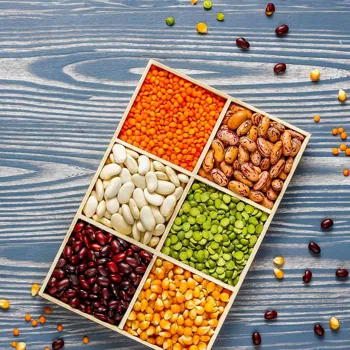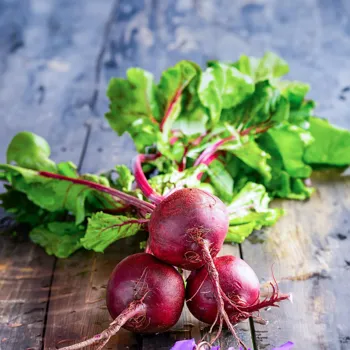Discover the power of superfoods in your kitchen! Boost your health with these 7 nutrient-packed foods. Read on!
Namaste, folks! Are you feeling a bit low on energy lately? Wishing you could boost your
immunity and overall health without resorting to fancy, expensive supplements? Well, look no further than your very own kitchen!

The secret lies in incorporating nature's powerhouses – superfoods – into your daily diet. These aren't magical elixirs, but rather everyday, easily accessible foods packed with an extraordinary concentration of vitamins, minerals, antioxidants, and other beneficial compounds.
Think of them as tiny soldiers fighting for your well-being from within.
In this ultimate guide, we'll unveil seven such superfoods that are readily available in India and can be easily incorporated into your meals.
From the humble spinach to the vibrant turmeric, we'll explore their nutritional benefits and, more importantly, how to include them in your daily routine. So, ditch the processed snacks and embrace these natural healers – your body will thank you for it!
It's time to embark on a journey towards a healthier and more vibrant you, one superfood at a time. Let's get started and discover the amazing benefits these foods offer! Remember, small changes can lead to big results in the long run.
Spinach: The Leafy Green Champion
Spinach, or "palak" as we lovingly call it, definitely earns its spot as a superfood. This leafy green is a nutritional powerhouse, boasting an impressive profile of vitamins, minerals, and antioxidants.

Just one cup of raw spinach provides a significant dose of Vitamin A, Vitamin C, Vitamin K, iron, and folate. These nutrients play crucial roles in various bodily functions, from boosting immunity and promoting healthy vision to strengthening bones and supporting cell growth.
The high iron content is particularly beneficial for those prone to anemia, helping to combat fatigue and increase energy levels.
Furthermore, spinach is rich in antioxidants, such as lutein and zeaxanthin.
Consumption of these helps to that help protect your cells from damage caused by free radicals, thus reducing the risk of chronic diseases like heart disease and cancer. Adding spinach to your diet is incredibly easy. Sauté it with garlic and spices for a quick and flavorful side dish.
Blend it into smoothies for a nutrient boost without significantly altering the taste. Or, simply toss it into salads for added texture and goodness. Palak paneer, a beloved Indian classic, is another delicious way to enjoy the benefits of spinach.
Turmeric: The Golden Healer
Turmeric, known as "haldi" in Hindi, is an indispensable spice in Indian cuisine and has been used for centuries in Ayurvedic medicine for its potent medicinal properties. The key active compound in turmeric is curcumin, a powerful antioxidant and anti-inflammatory agent.

Curcumin has been shown to have numerous health benefits, including reducing inflammation, relieving joint pain, and improving heart health. Its anti-inflammatory properties make it particularly beneficial for individuals suffering from arthritis or other inflammatory conditions.
Studies have also suggested that curcumin may play a role in preventing and managing chronic diseases such as Alzheimer's disease and cancer. Adding turmeric to your diet is simple and versatile.
Use it liberally in your cooking – it adds a warm, earthy flavor and a vibrant golden color to any dish. Stir it into milk (haldi doodh) for a soothing and immunity-boosting beverage.
You can also find curcumin supplements, but it's always best to consult with a doctor before starting any new supplement regimen. Remember to combine turmeric with black pepper, as piperine in black pepper enhances the absorption of curcumin in the body.
Amla: The Indian Gooseberry Wonder
Amla, also known as the Indian gooseberry, is a true superfood treasure. This small, green fruit is an exceptional source of Vitamin C, packing significantly more than oranges or lemons.

Vitamin C is a potent antioxidant that strengthens the immune system, protects against infections, and promotes collagen production for healthy skin and hair.
Amla also boasts a wealth of other nutrients, including antioxidants, polyphenols, and minerals, contributing to its overall health-promoting effects. Its consumption is believed to improve digestion, promote liver health, and regulate blood sugar levels.
Furthermore, amla has been shown to have anti-aging properties, helping to combat free radical damage and maintain youthful vitality. While amla can be quite sour, there are numerous ways to enjoy its benefits. You can eat it raw, pickled, or candied.
Amla juice is a popular and nutritious beverage. Amla powder can be added to smoothies, yogurt, or even mixed with honey for a sweet and tangy treat. Amla murabba, a traditional Indian preserve, is another delicious way to enjoy this superfood.
Ginger: The Digestive Dynamo
Ginger, or "adrak" in Hindi, is a widely used spice with a long history of medicinal use. It is renowned for its potent anti-inflammatory and anti-nausea properties. Ginger contains gingerol, a bioactive compound that has been shown to reduce inflammation, relieve pain, and improve digestion.
It's particularly effective in alleviating nausea caused by motion sickness, morning sickness, or chemotherapy. Ginger's digestive benefits stem from its ability to stimulate digestive enzymes and promote healthy gut motility. It can help ease bloating, gas, and indigestion.
Studies have also indicated that ginger may have a positive effect on blood sugar levels and cholesterol levels, making it beneficial for individuals with diabetes or heart disease. Incorporating ginger into your diet is incredibly easy.
Grate it into your cooking, add it to tea, or chew on a small piece raw to soothe nausea. Ginger ale, made with real ginger, can also be a refreshing and effective remedy for digestive discomfort.
Ginger-garlic paste is a staple in Indian cooking, adding flavor and health benefits to countless dishes.
Lentils: The Protein Powerhouse
Lentils, or "dal" in Hindi, are a staple in the Indian diet and a fantastic source of plant-based protein, fiber, and essential nutrients. They are an excellent alternative to meat, providing a substantial amount of protein without the saturated fat and cholesterol.

Lentils are also rich in fiber, which promotes digestive health, regulates blood sugar levels, and helps you feel full and satisfied, aiding in weight management.
They are also good source of iron, folate, magnesium, and potassium, all of which are essential for maintaining overall health and well-being.
Different types of lentils, such as red lentils, green lentils, and brown lentils, offer slightly different nutritional profiles, but all are incredibly beneficial.
Lentils are a versatile ingredient that can be used in a wide variety of dishes.
Dal is a classic Indian dish, made with lentils, spices, and often vegetables. Lentil soup is a hearty and nutritious meal, perfect for cold weather. Lentils can also be added to salads, stews, and casseroles for added protein and fiber.
Eating lentils regularly can help lower your risk of heart disease, diabetes, and certain types of cancer.
Yogurt: The Probiotic Pro
Yogurt, or "dahi" in Hindi, is a fermented milk product packed with probiotics, beneficial bacteria that promote gut health. Probiotics play a crucial role in maintaining a healthy balance of bacteria in the gut, which is essential for digestion, immunity, and overall well-being.

Yogurt helps improve digestion by breaking down lactose and promoting the absorption of nutrients. It also strengthens the immune system by stimulating the production of antibodies and fighting off harmful bacteria.
Furthermore, yogurt is a good source of calcium, protein, and vitamin D, all of which are important for bone health and muscle function. Plain, unsweetened yogurt is the healthiest option, as it contains no added sugars or artificial flavors. You can add your own fruits, nuts, or honey for flavor.
Yogurt can be enjoyed as a snack, used in smoothies, or added to curries for a creamy texture. Raita, an Indian yogurt-based condiment, is a refreshing and cooling accompaniment to spicy meals.
Beetroot: The Blood Booster
Beetroot, or "chukandar" in Hindi, is a vibrant root vegetable packed with nutrients and boasts numerous health benefits. It is a good source of nitrates, which the body converts into nitric oxide. Nitric oxide helps relax blood vessels, improve blood flow, and lower blood pressure.

This makes beetroot beneficial for individuals with hypertension or those looking to improve their cardiovascular health. Beetroot is also rich in antioxidants, which protect your cells from damage and reduce the risk of chronic diseases.
It also contains folate, potassium, and fiber, contributing to overall health and well-being.
Studies have shown that beetroot may enhance athletic performance by improving oxygen utilization and reducing fatigue. You can eat beetroot cooked, raw, or juiced.
Beetroot juice is a popular and effective way to reap its benefits. Beetroot salad is a delicious and nutritious side dish. Beetroot can also be added to soups, stews, and even baked goods. Remember that beetroot can temporarily turn your urine and stool pink or red, which is harmless.
So, there you have it! Seven superfoods that are readily available in India and can be easily integrated into your daily diet.
Remember, incorporating these foods into your meals is not about drastic changes, but rather about making small, sustainable choices that contribute to long-term health and well-being. Start with one or two new foods each week and gradually increase your intake.
Experiment with different recipes and cooking methods to find ways to enjoy these superfoods that suit your taste and preferences. Your body will thank you for it! Stay healthy and stay happy!













